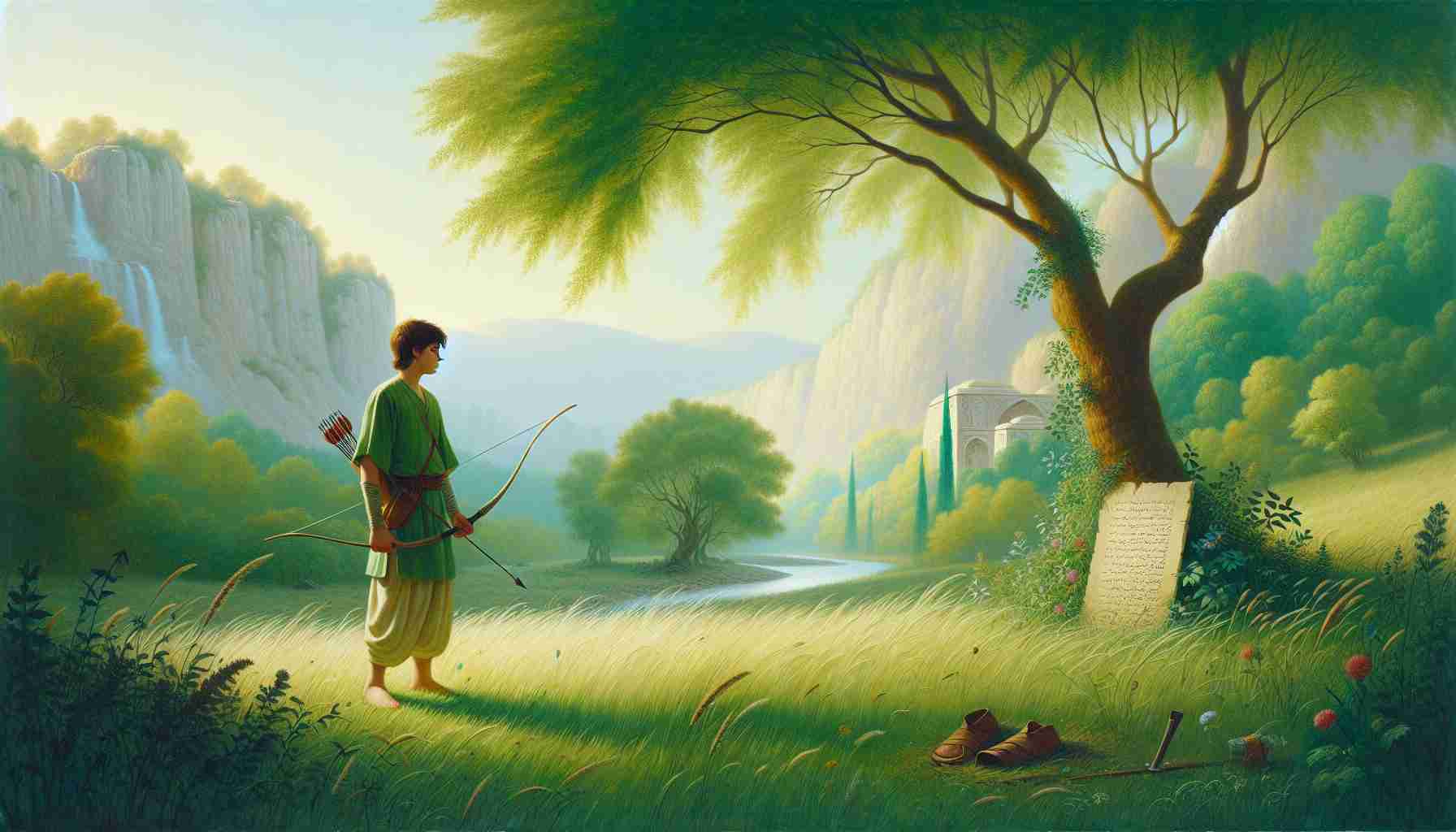

The wind was strong that morning, pushing the tall grass all around me, but I stood still. Not because I wanted to, but because I had no strength left to move.
My name is Jun, and I once believed that hard work could fix anything—that if I just tried harder, practiced more, and pushed forward, I would finally become the best archer in the village. I trained day and night, pulling my bow so tightly that my fingers bled. Still, I couldn’t hit the center of the target. Not once.
One day, as I sat by the river in defeat, an old man in a gray robe sat beside me. His beard was long like a river trailing down a mountain, and his eyes were quiet like the still pond.
“You hold the bow too tightly,” he said without looking at me.
“How else am I supposed to aim?” I snapped. “I’m trying my hardest.”
He smiled gently. “That may be the problem.”
I didn’t understand. Wasn’t trying supposed to help me get better?
The old man looked up at the sky and said, “When the wind moves, the grass bends without trying. If it resisted, it would break.”
I said nothing, but the words stuck in my head. That evening, I visited the village temple, hoping to find peace. By chance, I saw a scroll on the wall, written by Laozi—a wise man from long ago who started the teachings of the Tao. It read: “The Way does nothing, yet nothing is left undone.”
It confused me at first. How could something be done by doing nothing?
The next morning, I stepped into the meadow with my bow. I didn’t grip it tightly this time. I didn’t squint or hold my breath. I let the wind come. I let my body relax. I let the arrow fly.
It hit the center.
I laughed—not because I was proud, but because I had finally felt something different. It wasn’t about control. It was about letting go.
That afternoon, I returned to the river, hoping to find the old man, but he was gone. Maybe he was never meant to stay.
I kept practicing after that, but not like before. I didn’t force my hand. I let the moments guide me. I smiled more, worried less. I helped my little brother fix his kite without rushing. I watched the trees sway and noticed how beautiful it was when they didn’t try to be anything but trees.
People began to whisper that I had become the best archer in the village. But that didn’t matter anymore.
What mattered was the quiet inside me.
I didn’t change overnight. But now, when life feels heavy, I remember the river, the wind, and the old man’s voice.
Let go.
Flow like water.
And trust the Tao.
The wind was strong that morning, pushing the tall grass all around me, but I stood still. Not because I wanted to, but because I had no strength left to move.
My name is Jun, and I once believed that hard work could fix anything—that if I just tried harder, practiced more, and pushed forward, I would finally become the best archer in the village. I trained day and night, pulling my bow so tightly that my fingers bled. Still, I couldn’t hit the center of the target. Not once.
One day, as I sat by the river in defeat, an old man in a gray robe sat beside me. His beard was long like a river trailing down a mountain, and his eyes were quiet like the still pond.
“You hold the bow too tightly,” he said without looking at me.
“How else am I supposed to aim?” I snapped. “I’m trying my hardest.”
He smiled gently. “That may be the problem.”
I didn’t understand. Wasn’t trying supposed to help me get better?
The old man looked up at the sky and said, “When the wind moves, the grass bends without trying. If it resisted, it would break.”
I said nothing, but the words stuck in my head. That evening, I visited the village temple, hoping to find peace. By chance, I saw a scroll on the wall, written by Laozi—a wise man from long ago who started the teachings of the Tao. It read: “The Way does nothing, yet nothing is left undone.”
It confused me at first. How could something be done by doing nothing?
The next morning, I stepped into the meadow with my bow. I didn’t grip it tightly this time. I didn’t squint or hold my breath. I let the wind come. I let my body relax. I let the arrow fly.
It hit the center.
I laughed—not because I was proud, but because I had finally felt something different. It wasn’t about control. It was about letting go.
That afternoon, I returned to the river, hoping to find the old man, but he was gone. Maybe he was never meant to stay.
I kept practicing after that, but not like before. I didn’t force my hand. I let the moments guide me. I smiled more, worried less. I helped my little brother fix his kite without rushing. I watched the trees sway and noticed how beautiful it was when they didn’t try to be anything but trees.
People began to whisper that I had become the best archer in the village. But that didn’t matter anymore.
What mattered was the quiet inside me.
I didn’t change overnight. But now, when life feels heavy, I remember the river, the wind, and the old man’s voice.
Let go.
Flow like water.
And trust the Tao.